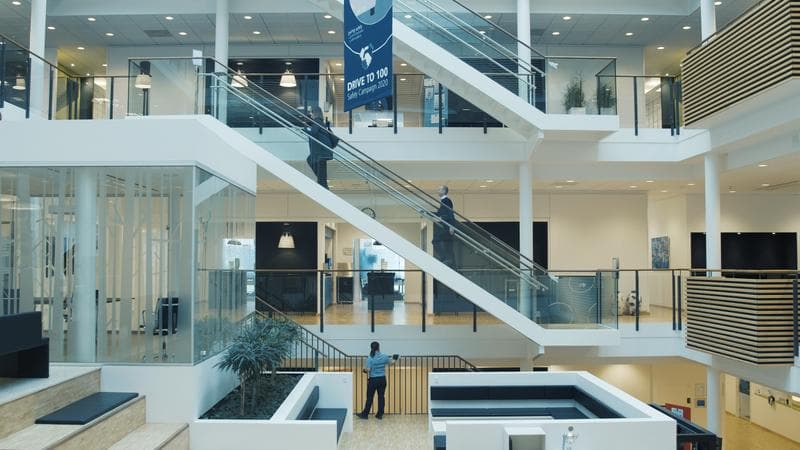Signe leads a global team of 200 Experience Managers – all experts at creating a sense of workplace community. They design workplace experiences for a wide range of companies, from international banks to IT firms and local food brands. Signe defines a workplace experience as a carefully crafted experience that promotes an emotional connection with the workplace and colleagues. These experiences can be big or small – from giving out hot chocolate in reception on a cold day to Food Truck Fridays, free fitness classes or intercompany sports events. The best workplace experiences are fun, promote a sense of community among employees, and link to the company’s values and business strategy.
For a company with a strong local profile, for example, a relevant workplace experience could be a farmer’s market in the carpark or a volunteering day at a nearby charity. Companies that value inclusion and diversity could celebrate different cultures and cuisines in the office canteen. Workplace experiences could also be more directly connected to work, such as a workshop on social media for companies that are developing or pushing a new social media strategy.
“The key is to think strategically,” says Signe. “You don’t just make an experience for the sake of it; you have to ensure that it fits your company culture and strategic priorities.” Signe suggests creating a yearly calendar, including both regular events and one-offs, to make sure your workplace experiences match your company’s business cycle. She also recommends linking events to the world outside the office, such as local sports events or International Women’s Day, to expand the feeling of community into the wider world.
These experiences make a big difference. In employee surveys, workplace experience is directly connected to a sense of belonging and recommendation. An employee who values the workplace experience, therefore, will not just come into the office more often, but will also be more likely to recommend the company as a place of work to others.


